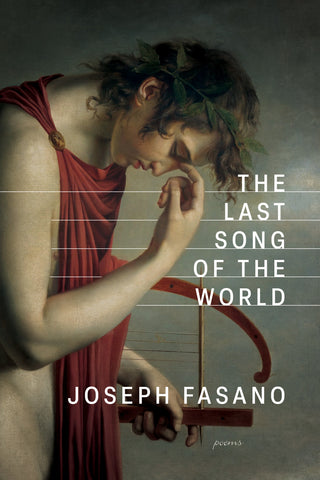
About This Title
Joseph Fasano’s The Last Song of the World delves into the chaos of the modern world, and searches for resilience in the face of environmental and societal devastation. Dripping with images of ancient ruins and mythological figures, these poems serve as vignettes of fatherhood, love, and desire against the backdrop of apocalyptic events.
Through the documentation of ongoing violence and natural phenomena, Fasano depicts the ever-present anxieties of parenting with concision and compassion. The Last Song of the World is a love letter to the world that could be, a world as tender as it is bold, as loving as it is brutal, as beautiful as it is horrendous.
Praise for The Last Song of the World,
“Give a copy of Joseph Fasano’s The Last Song of the World to someone who loves poetry, then give another copy to someone who says they don’t ‘get’ poetry, someone who thinks of it as a lush garden concealed behind a locked gate. There is no gate here. In writing clearly and evocatively about the human experience, Fasano has invited us all inside.” —Maggie Smith, New York Times bestselling author of You Could Make This Place Beautiful
"Elemental and eloquent in their quest for heart-truths, Joseph Fasano's lucid, almost-transparent poems have the beauty of a questing imagination alert and aware on its earnest journey through this world." —Gregory Orr, author of Poetry as Survival
Excerpt from The Last Song of the World,
Sudden Hymn in Winter
What if, after years
of trial,
a love should come
and lay a hand upon you
and say,
this late,
your life is not a crime

